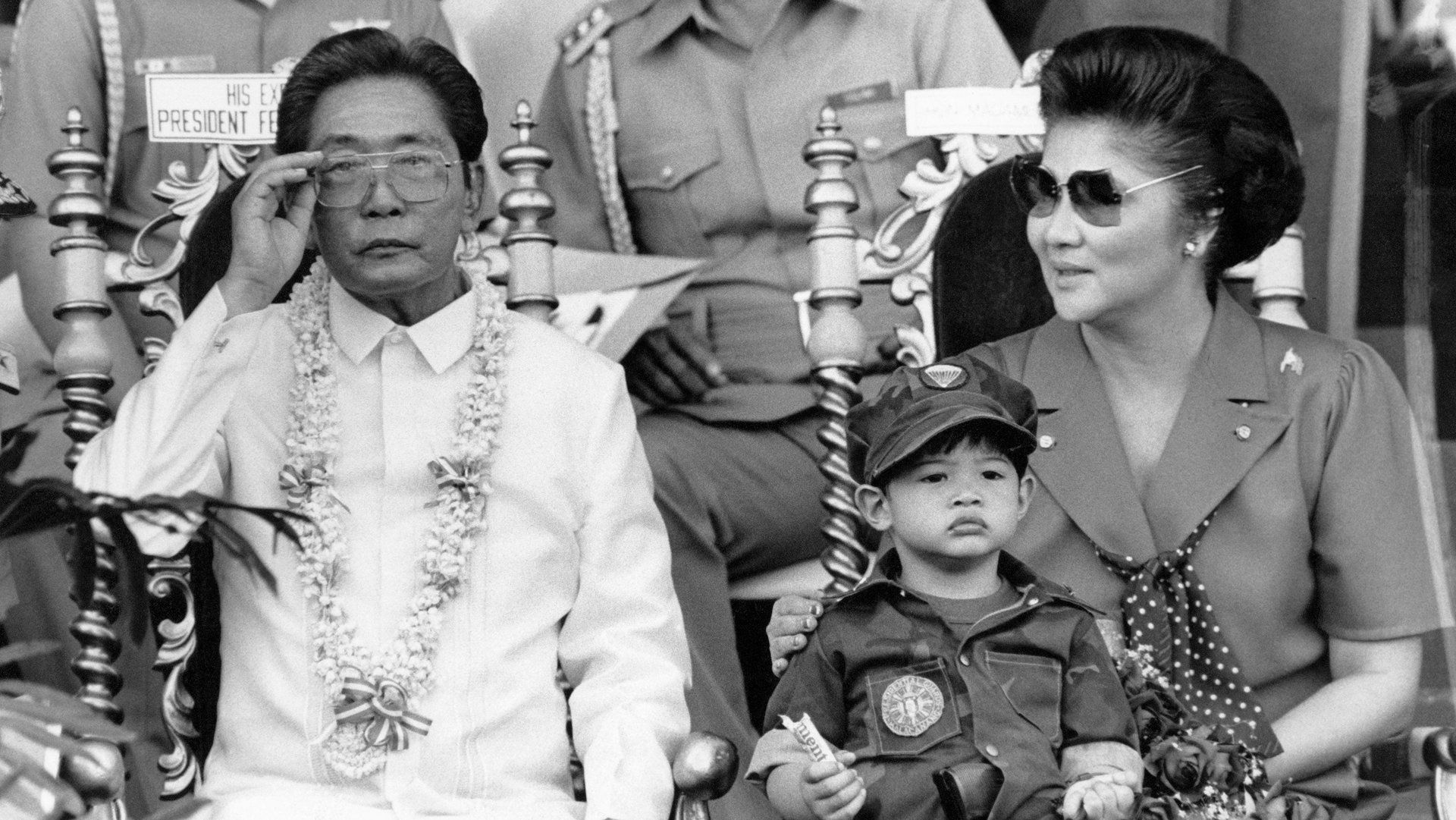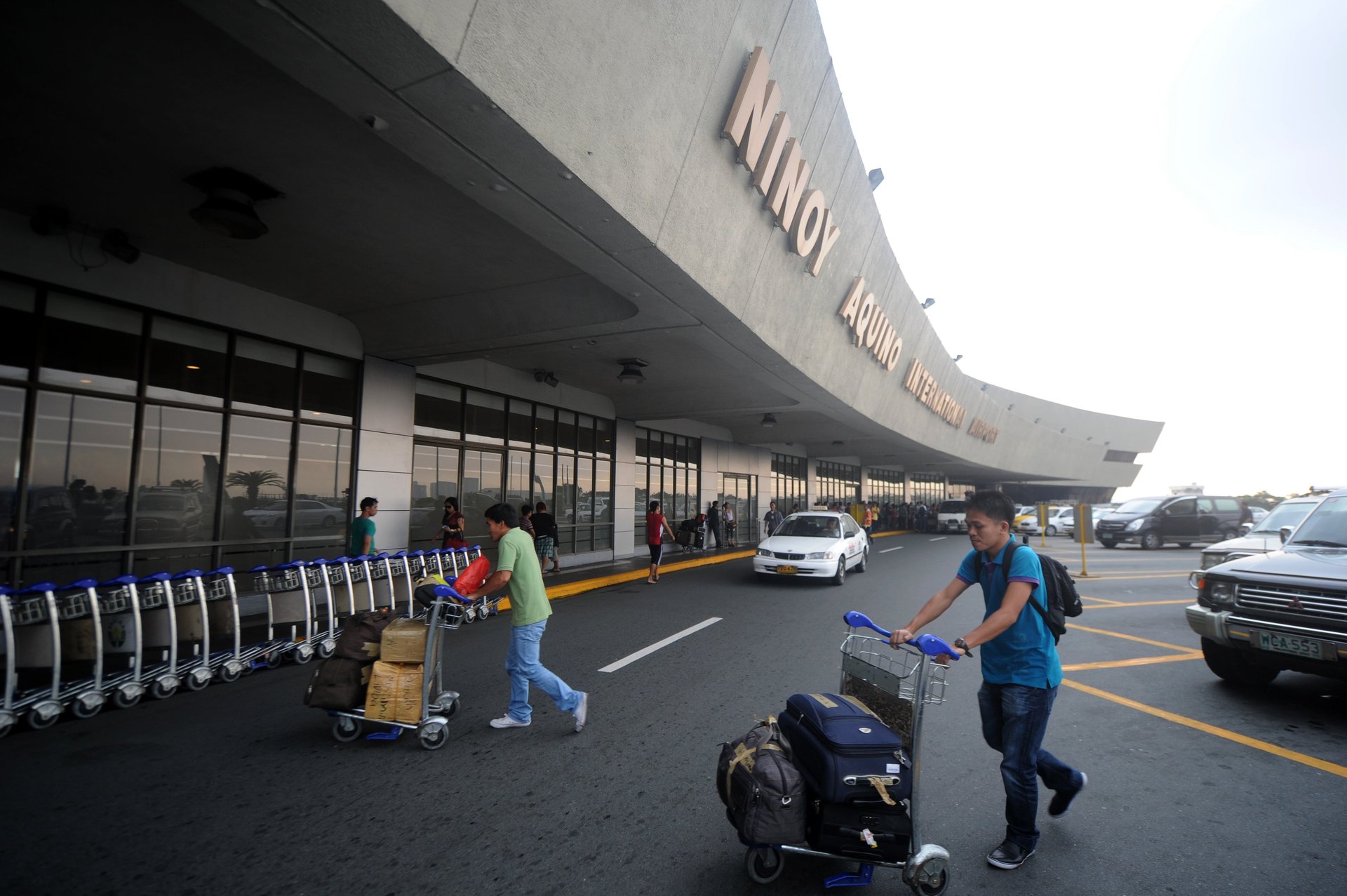There’s a proposal to rename Manila’s airport after the country’s deadliest dictator
An airport’s name gives travelers a first impression of a place’s character. It’s curious then that a Filipino lawmaker wants to rename the Philippines’s major international hub after Ferdinand Marcos, the country’s most notorious dictator whose name still triggers a collective horror.


An airport’s name gives travelers a first impression of a place’s character. It’s curious then that a Filipino lawmaker wants to rename the Philippines’s major international hub after Ferdinand Marcos, the country’s most notorious dictator whose name still triggers a collective horror.
Although other airports carry the names of questionable politicians, none are named after a personality with such a grim legacy as Marcos. Marcos was a strongman president whose 20-year regime is defined by graft, corruption, and a slate of human rights crimes. TIME lists him among history’s worst dictators, sharing the notoriety with the likes of Muammar Gaddafi, Saddam Hussein, and Adolf Hitler.
But it appears that a new generation of Filipinos are willing to overlook history. In May, his son Ferdinand Jr. (a.k.a. “Bongbong) won the country’s top executive office by a landslide victory. Congressman Arnolfo Teves Jr., a conservative, filed the bill to rename the airport on June 30, the first day of Marcos’s presidency.

A brief history of Manila’s airport
The Philippine capital’s airport was built on the bones of a former US Air Force base. From a short runway built for small planes, it expanded to one of Asia’s busiest hubs, serving nearly 50 million passengers a year prior to the pandemic. It was known as Manila International Airport when the international runways opened in the early 1950s, operating under the airport codes MNL under the International Air Transport Association (IATA) system and RPLL per the International Civil Aviation Organization’s standards. In 1987, it was renamed to Ninoy Aquino International Airport after Marcos’s ideological rival, whose assassination at the airport’s tarmac eventually led to an uprising that ended the Marcos dictatorship.
Teves speciously argued that the airport should bear the Marcos name because the idea for transforming a former US military facility into an international hub was hatched during his administration. “It is more appropriate to bear the name [of the person who] has contributed…to make the Philippines a center of international and domestic air travel,” he said, proposing the new name to be Ferdinand E. Marcos International Airport.
For the change to occur, Teves’s bill will have to pass in the Philippine house and senate and be approved by the president. Philippine airport officials will also need to register the new name with the international transport associations, and spend millions to update the signage and markings in the process, as Las Vegas did when it rebranded its local airport to honor the late senator Harry Reid.
Anti-Marcos factions are already questioning the premise of Teves’s bill. For instance, Rappler, the local watchdog media outlet, points out the airport was constructed years before Marcos was elected into office. Many Filipinos who lived through the Marcos regime are expressing dismay on social media. Several are in favor of reverting back to the original name—Manila International Airport—to disassociate it from the country’s tumultuous political history.